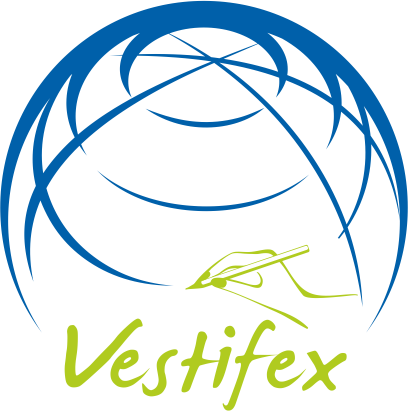Html code will be here
2018-2020
DIVINT (DIVersity, iNtegration, Training
ERASMUS+ KA2
The DIVINT (DIVersity, iNtegration, Training) project aims to empower national language teachers and trainers in order to support diversity and boost intercultural and multicultural systems in Europe through language education. The project wants to provide groups of young new arrivals (refugees, asylum seekers and migrants) access to intercultural language training in order to allow them to master simultaneously the host-countries languages and social, civic and intercultural competencies... in short, living-together & doing-together competencies.
As a society, Europe is facing some of its major significant challenges since the end of the WWII. For European countries cultural diversity is a key issue. The question about how to foster social cohesion and to fight against discrimination is in the heart of debates in an increasingly culturally-diversified Europe.
Policymakers throughout Europe feel increasing pressure to adopt more effective approaches but are uncertain how to bring people together to achieve this. It is in this context that the European Commission has called for political leadership to overcome social divisions and to generate acceptance for diversity (New priorities for European cooperation in education and training, Council and EC 2015).
The "Declaration on promoting citizenship and the common values of freedom, tolerance and non-discrimination through education" (2015) of the ministers of education expressed an urgent need to cooperate and coordinate, to exchange experiences, and to ensure that the best ideas and practices can be shared throughout the EU, with the goals of:
Policymakers throughout Europe feel increasing pressure to adopt more effective approaches but are uncertain how to bring people together to achieve this. It is in this context that the European Commission has called for political leadership to overcome social divisions and to generate acceptance for diversity (New priorities for European cooperation in education and training, Council and EC 2015).
The "Declaration on promoting citizenship and the common values of freedom, tolerance and non-discrimination through education" (2015) of the ministers of education expressed an urgent need to cooperate and coordinate, to exchange experiences, and to ensure that the best ideas and practices can be shared throughout the EU, with the goals of:
- Ensuring inclusive education for all children and young people in order to combat racism and discrimination on any grounds, to promote citizenship, and to teach them to understand and to accept differences of opinion, of conviction, of belief and of lifestyle, while supporting the rule of law, diversity and gender equality.
- Empowering teachers so that they are able to take an active stand against all forms of discrimination and racism, to educate children and young people media literacy and language, to meet the needs of learners from diverse backgrounds, to impart common fundamental values, and to prevent and combat racism and intolerance.
The DIVINT (DIVersity, iNtegration, Training) project aims to empower national language teachers and trainers in order to support diversity and boost intercultural and multicultural systems in Europe through language education. The project wants to provide groups of young new arrivals (refugees, asylum seekers and migrants) access to intercultural language training in order to allow them to master simultaneously the host-countries languages and social, civic and intercultural competencies... in short, living-together & doing-together competencies.
Seven partner organizations (educational authorities, adults, schools and VET providers and social partners) from seven countries (Sweden, Belgium, Portugal, Estonia, Romania, Greece, and Spain) will work together to develop the DIVINT project, extending their scope beyond the borders of their own countries in order to define common strategies to address diversity and intercultural education in Europe.
The project partners from these different countries – the leading partner Centrum för flexibelt lärande (Sweden); CIEP asbl (Belgium); ELLINOAMERIKANIKH ENOSI (HELLENIC AMERICAN UNION) (Greece); INSTITUTO DE SOLDADURA E QUALIDADE (Portugal); Innovation Training Center, S.L (Spain); and OÜ Vestifex (Estonia) Fundatia Centrul Educational Spektrum (Romania) – will work together to develop the DIVINT project, extending their scope beyond the borders of their own countries in order to define common strategies to address diversity and intercultural education in Europe.
The following is placeholder text known as "lorem ipsum," which is scrambled Latin used by designers to mimic real copy. Vestibulum ante ipsum primis in faucibus orci luctus et ultrices posuere cubilia Curae. Suspendisse nec congue purus. Donec eu est non lacus lacinia semper.
Vestibulum ante ipsum primis in faucibus orci luctus et ultrices posuere cubilia Curae. Vivamus a ante congue, porta nunc nec, hendrerit turpis. Nullam sit amet nisi condimentum erat iaculis auctor. Vestibulum ante ipsum primis in faucibus orci luctus et ultrices posuere cubilia Curae.
Seven partner organizations (educational authorities, adults, schools and VET providers and social partners) from seven countries (Sweden, Belgium, Portugal, Estonia, Romania, Greece, and Spain) will work together to develop the DIVINT project, extending their scope beyond the borders of their own countries in order to define common strategies to address diversity and intercultural education in Europe.
The project partners from these different countries – the leading partner Centrum för flexibelt lärande (Sweden); CIEP asbl (Belgium); ELLINOAMERIKANIKH ENOSI (HELLENIC AMERICAN UNION) (Greece); INSTITUTO DE SOLDADURA E QUALIDADE (Portugal); Innovation Training Center, S.L (Spain); and OÜ Vestifex (Estonia) Fundatia Centrul Educational Spektrum (Romania) – will work together to develop the DIVINT project, extending their scope beyond the borders of their own countries in order to define common strategies to address diversity and intercultural education in Europe.
The following is placeholder text known as "lorem ipsum," which is scrambled Latin used by designers to mimic real copy. Vestibulum ante ipsum primis in faucibus orci luctus et ultrices posuere cubilia Curae. Suspendisse nec congue purus. Donec eu est non lacus lacinia semper.
Vestibulum ante ipsum primis in faucibus orci luctus et ultrices posuere cubilia Curae. Vivamus a ante congue, porta nunc nec, hendrerit turpis. Nullam sit amet nisi condimentum erat iaculis auctor. Vestibulum ante ipsum primis in faucibus orci luctus et ultrices posuere cubilia Curae.
Project supported

Keep in touch!


